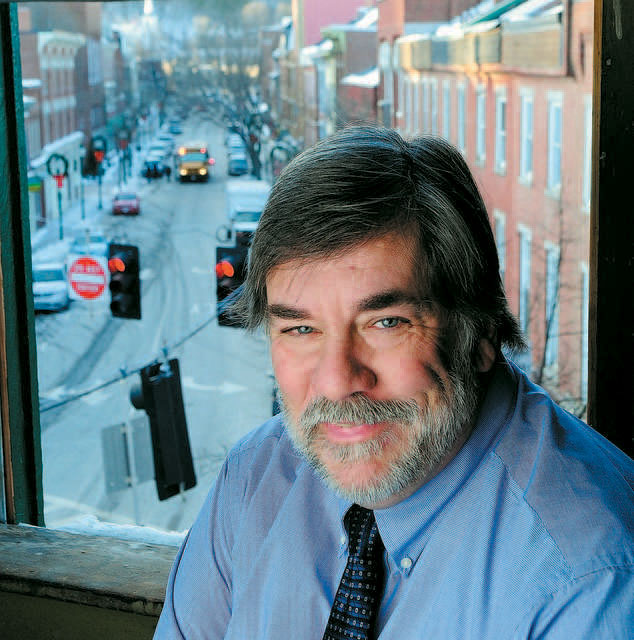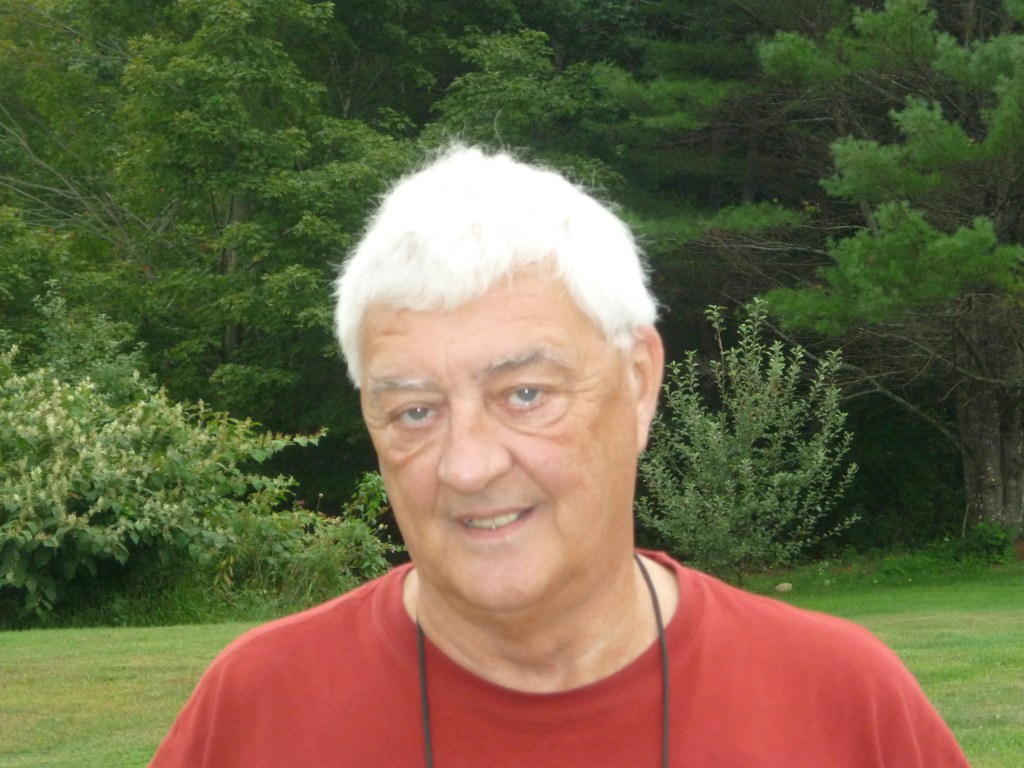Gardiner residents won’t be short of choices in November’s races for City Council and mayor.
Six people submitted papers last week to run for three council seats and two residents are running for mayor. Last year, all three council races were uncontested.
The starkest contrast between candidates is in the mayoral race, a race between the incumbent, Thomas Harnett, and George Trask, an outspoken former councilor who occasionally butted heads with Harnett while attending council meetings about the budget this year.
In the council races, two current councilors — Robert Logan Johnston and Scott Williams — turned in nomination papers to run. All three seats are at-large, meaning they aren’t representing specific districts. Jonathan Ault, Maureen Blanchard, Steve Hunnewell and Richard Rambo are also running for council.
The Gardiner Public Library is hosting a candidate forum for both races at 7 p.m. Oct. 7.
THE RACE FOR MAYOR
Trask, 59, of Libby Hill Road, frequently told councilors during discussions of the budget this year not to raise taxes at all, and he said he’s responsible for the “No Tax Increase” signs that popped up around the city during the discussions.
Trask, who lost his last bid for council in 2010, is calling for a shake-up throughout city government. He said some people have been on city committees too long and that the city has too many employees. Prior to his 2009 to 2010 term, Trask served on the council between 1996 and 2000.
During council meetings, he advocated for eliminating the more than $100,000 in funding that goes to the Boys & Girls Club of Greater Gardiner, Gardiner Main Street and Johnson Hall Performing Arts Center each year. Trask said last week that the city is also spending too much on its library, the ambulance service and office employees.
One of the most significant differences between Trask and Harnett is their thoughts on the downtown.
Trask said the city shouldn’t try revitalizing the downtown and should instead focus on attracting development on Brunswick Avenue near the interstate.
“Putting our money downtown is an absolute waste of money because the downtowns are gone,” Trask said. “You’re not going to bring it back. It’s not going to happen.”
Harnett, however, sees the historic downtown as a way to bring more people to the city and to stop losing population. Between 1990 and 2010, the city’s population dropped from about 6,000 to less than 5,800.
“We need to reverse that trend,” Harnett said. “I think we can do that by, one, making our downtown as attractive as it can be, making our city as attractive as it can be.”
He said he thinks the city has done that by constructing a new gazebo this year and by renovating the Waterfront Park a couple of years ago, both projects with funding from public and private sources.
Harnett, 59, of Martson Road, is also more optimistic about the city’s direction. He said the two recent lot sales at the city’s Libby Hill Business Park and the approval of the first business using the city’s new zoning rules for redeveloping older buildings will both lessen the tax burden for residents and bring jobs to the city.
The city didn’t raise taxes as a result of the municipal budget in three of the last five years, but its tax rate is still higher than all the surrounding communities, which have mostly seen population gains in recent years.
Although Harnett said it was troubling that the city increased taxes by 3.5 percent this year, cuts by the state to municipal revenue sharing forced the city into that position, he said.
“I want them to be lower, but you have to look at the reason for the increase,” Harnett said.
Between fiscal year 2008 and this year, the city saw the amount of revenue sharing funds drop from $888,565 to an anticipated $382,392 — about $530,000 less than what the state is supposed to provide, according to City Manager Scott Morelli.
Harnett said if he is re-elected, he’ll continue lobbying the state to increase the amount of revenue and continue discussions with surrounding communities about finding ways to consolidate services.
COUNCIL CANDIDATES
Of the six City Council candidates, three have previously served as councilors.
Williams, 22, of High Holborn Street, was first elected to the council in 2010 as a senior at Gardiner Area High School. Williams, a manager at the newly opened Orange Leaf in Augusta, said he thinks the city needs to try to find a way to reduce taxes.
“We need to decide whether we want to keep remaining a service-oriented city or look at some other options. It’s definitely a hard decision,” he said.
Williams said he would be in favor of cutting some services, but he wouldn’t know which until the council took a closer look at the budget.
Councilors will be doing a goal workshop at their meeting Wednesday as part of a process to evaluate the entire city budget.
Johnston, 61, like Harnett, said he would lend his voice to the council to continue trying to convince the state Legislature and the governor to restore revenue sharing. He said the drop in revenue has put the city in the current financial bind.
Johnston, a farmer on Oaklands Farm Road, has frequently encouraged the council to look at ways to regionalize service with the surrounding communities and said he thinks all councilors want to provide city services in the most efficient, cost-effective ways possible.
“This council — I hope the next council — will continue to listen hard and listen carefully to what residents and the taxpayers are saying and to act accordingly. That’s a balancing act, but it’s what we do for our neighbors and our community,” Johnston said.
Rambo, 65, of High Holborn Street, was first elected to the council in 2003 and served on the council until 2010. He said he decided to run again because he felt like he contributed to the council before and he enjoyed the work.
As a councilor, Rambo said he started an organizational task force to look at ways the city can improve. One of the recommendations that didn’t move forward — the city creating an Internet service network — is something Rambo said should have happened. When Rockport unveiled a high-speed Internet network in August, Rambo said he thought to himself, that should have been Gardiner.
Rambo, who used to own a real estate agency in Gardiner and owns an early child care center in Pennsylvania, said he thinks the city should restart the organizational task force and look at the previous recommendations again.
He also said he’s been dismayed by some of the councilors because it appears not all have been putting in the necessary work to understand the issues, particularly the budget.
Steve Hunnewell, 53, of Marston Road, served as a representative to the school board between 2005 and 2010, including stints as chairman and vice chairman of the board. He said he’s running for council because he wants to see if the city can deliver services to its taxpayers more efficiently to reduce the tax rate.
“Our property taxes are quite a bit higher than other towns,” Hunnewell said, “and I really think that’s holding the city back and a big reason why our population has been declining.”
Hunnewell, a civil engineer for the Maine Department of Transportation, didn’t suggest any specific cuts, but said he thinks the city needs to do a top-to-bottom look at how it provides services and try to do everything more efficiently.
Jonathan Ault, 29, of Brunswick Avenue, is running because he wants to be involved in the community and be a force for change.
“I would have the energy it really takes to consider what Gardiner needs,” he said.
Ault, the field manager for an organic farm in Winthrop, said he thinks the city needs to evaluate its priorities and examine what’s important. Specifically, Ault said he thinks the city needs to focus on evaluating what it needs for services, such as the cost of the city’s library.
Ault also helps coordinate the Gardiner Farmers’ Market and is on the board of directors for the Gardiner Food Co-op & Cafe, which is looking to open this year.
Maureen Blanchard, of Dresden Avenue, couldn’t be reached for comment. Blanchard was a frequent participant in the budget discussions earlier this year and an advocate for keeping taxes flat.
“If you raise the rate, you are pushing people of this town that I love,” Blanchard told councilors at a June meeting. “It does not fit your goal.”
Paul Koenig — 621-5663
Twitter: @paul_koenig
Send questions/comments to the editors.




Success. Please wait for the page to reload. If the page does not reload within 5 seconds, please refresh the page.
Enter your email and password to access comments.
Hi, to comment on stories you must . This profile is in addition to your subscription and website login.
Already have a commenting profile? .
Invalid username/password.
Please check your email to confirm and complete your registration.
Only subscribers are eligible to post comments. Please subscribe or login first for digital access. Here’s why.
Use the form below to reset your password. When you've submitted your account email, we will send an email with a reset code.